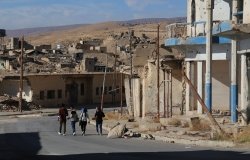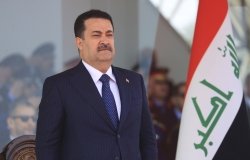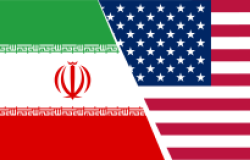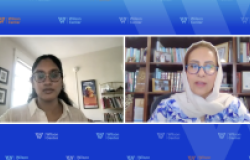A New Beginning and a New Regional Office Paving the Way for a New Model for Human Rights in Egypt
Former Wilson Center public policy scholar Moushira Khattab on Egypt's decision to offer to host a regional office for the United Nations High Commission on Human Rights (OHCHR).
Following the television coverage of Egypt’s national debate on whether to amend or write a new constitution, I was struck by a piece of news written in very fine print on the news ticker. I thought I read something about Egypt accepting to host the regional office for North Africa for the United Nations High Commission on Human Rights (OHCHR). Suspense was replaced with relief when it was confirmed that what I had read was more than my mind, and wishful thinking, playing tricks on me. Egypt had indeed offered to host a regional office for OHCHR. Having worked in the human rights field for many years, and having spent eight years as an expert on one of the UN human rights committees, I can vouch for the eagerness of the Commission to have its office in Cairo. Unfortunately, I can also vouch for the reluctance, if not apprehension, of the Egyptian government to have the human rights body on its territory.
Egypt at the time had accepted only one request from UN special rapporteurs or representatives to visit Egypt. I recall the stir I created in 2009, when I invited the High Commissioner for Human Rights to attend an international conference on the Islamic shari’a and the rights of the child. The Egyptian minister of foreign affairs at the time did not share my enthusiasm that the visiting dignitary would applaud Egypt’s 2008 legal reform for children. He worried instead about possible criticism of Egypt’s human rights situation. Maybe his concern was justified because it was hard to miss the sight of sit-ins of different groups asking for employment or a pay raise; some camped in front of both the cabinet and the parliament. Following negotiations to establish the regional office, I thought that if a one-day courtesy visit would generate such apprehension, who would allow permanent representation? The Egyptian government made a promise to open a regional office for OHCHR when lobbying in 2007 for its membership on the Human Rights Council, then later during the "universal periodical review" of its human rights dossier by the same council in 2010. More than three years later, however, the promise never materialized. Faced with Egypt’s hesitation or reluctance, OHCHR accepted the offer of another Arab country to host the office, with its heart still set on Egypt—understandable given the country’s regional stature.
Egypt’s minister of transitional justice visited the High Commission in Geneva in mid-September 2013. He captured the Egyptian psyche when he declared that the approval of the current Egyptian government has put an end to the reluctance of previous governments. The news that the High Commissioner herself is planning to inaugurate the office did not come from her spokesperson but that of yet another Egyptian minister (the minister of social affairs) who happened also to be visiting Geneva at the same time.
The decision no doubt reflects the changing domestic balance of power. The events of January 25, 2011, followed by June 30 and July 26, 2013, have empowered the Egyptian citizen vis-à-vis the ruler, who is learning the true meaning of accountability to a voting constituency. Two presidents were overthrown by popular demand. The Egyptian ruler turned from a pharaoh into a subservient of the masses, hopefully leading to a paradigm shift in the state commitment to respect and fulfill the demands (not yet called rights) of its citizens. Egypt will eventually witness a repositioning of the power balance as a contract to honor citizens’ human rights. The current fixation in public discourse about political rights will eventually be leveled by similar attention to other indivisible rights that do not receive as much attention such as civil, economic, social, and cultural rights. Still missing is popular pressure on the state to honor its commitments under international human rights conventions and to abide by their standards. This will lead to transparency and accountability, in favor of the average citizen, and improve Egypt’s human rights rating at the global level.
I hope that the presence of the regional office will assist Egypt’s governmental efforts to take measures that will serve as a roadmap to ensure the rights of every Egyptian such as:
1. Harmonizing national legislation with UN human rights conventions ratified by Egypt. An immediate task would be seizing the ongoing process of rewriting the Egyptian Constitution, which, like its predecessors, is still written as administrative decrees. It desperately needs a human rights approach and new language that reflects the changing reality on the ground. It must be inspired by the Universal Declaration of Human Rights and all ensuing conventions. The legislation must be reviewed regularly, not only article by article but in its entirety. Reservations to some human rights conventions must be lifted; all rights must be justiciable and fair remedies must be provided to victims of violations.
2. Formulating national strategies with clear-cut, time-bound, and measurable objectives to ensure human rights. Such strategies must be translated into specific plans and policies adopted by the highest national authorities. Obstacles to implementation must be monitored transparently.
3. Strengthening the mandate of the National Council for Human Rights to comply with the “Paris Principles.”
4. Strengthening the mandate and resources of national entities in charge of coordinating the rights of certain groups such as women and children. One must acknowledge the amendments to the 2012 Constitution by the group of 10 experts, which bestowed the status of monitoring and independent bodies upon the above mentioned entities. If approved, such elevation of status will redress their marginalization.
5. Establishing a central data system capable of revealing pockets of marginalization. The data must guide policies, by providing victims of exclusion with specific measures of redress and affirmative action where needed.
6. Allocating adequate financial, human, and institutional resources. Such allocations should be made visible in the national budget.
7. Partnering with civil society in policy formulation, monitoring, and implementation. Egypt prides itself on its strong and vibrant civil society that has established itself in the current political turmoil as the holder of balance. There are encouraging signs that its role will be recognized by the state. It is significant to note that the current Minister of Social Affairs Ahmed el-Borai is a human rights activist himself and now in charge of the law regulating the activities of NGOs currently under examination. In an unprecedented and encouraging move, the minister of foreign affairs declared in mid-September that the law should be written in the spirit of the revolution. I am optimistic to see this shift at the governmental level.
8. Implementing systematic and sustainable campaigns to raise awareness of human rights among different segments of society. Human rights education for children is crucial to create an environment based on tolerance and understanding, which is conducive to the respect and protection of human rights. For decades, schools were used for decades to brainwash children as part of the unannounced Islamization of Egyptian society by teachers who took it upon themselves to impose their religious leanings on their students.
9. Building capacity of all professionals who interact with citizens such as the judiciary, police, armed forces, media, psychologists, and teachers.
10. Encouraging regional and international cooperation in all areas related to human rights, such as human and drug trafficking, organized crime, and terrorism—where Egypt has always assisted Arab and African countries. I can see Egypt playing a stronger regional role in this respect.
Such measures will promote the rights of the ordinary citizen, provided they perceive it this way and are convinced it is the right approach.
Two issues worry me amid what is undoubtedly a remarkable development. First is that the economic difficulties facing Egypt should not derail but rather prompt the OHCHR to provide significant facilities that will assist the expedient and efficient operation of the office. North African countries, including Egypt, are going through trying times and need the support of this office.
The second is that while it is heartening to see statements by government officials concerning the opening of the regional office, the silence on the part of civil society, especially human rights activists, does not bode well. Is it indifference triggered by the perception of human rights as a foreign notion or not part of the new Egyptian political order? Or is it that amid uncertainty, NGOs do not want to risk association with a particular political leaning? This last possibility worries me least, because with greater political stability, which we are heading toward, NGOs and the public at large will begin to take stances freely on this and on other issues.
My hope is that cultural specificity will no longer be used to derail the establishment of an environment supportive of human rights. The rights of humans and their freedoms are all the same, everywhere. The countries that progressed are those that respected and protected the rights of its citizens. This is exactly what Egypt, Egyptians, and North Africans deserve.
~ ~ ~ ~ ~ ~ ~ ~ ~
The opinions expressed herein are those of the author and do not reflect those of the Wilson Center.
About the Author

Moushira Khattab
First Vice Chair of the African Committee of Experts on the Rights and Welfare of the Child; Former Ambassador of Egypt to South Africa and to the Federal Republic of Czechoslovakia; and Former Egyptian Minister of Family and Population

Middle East Program
The Wilson Center’s Middle East Program serves as a crucial resource for the policymaking community and beyond, providing analyses and research that helps inform US foreign policymaking, stimulates public debate, and expands knowledge about issues in the wider Middle East and North Africa (MENA) region. Read more










